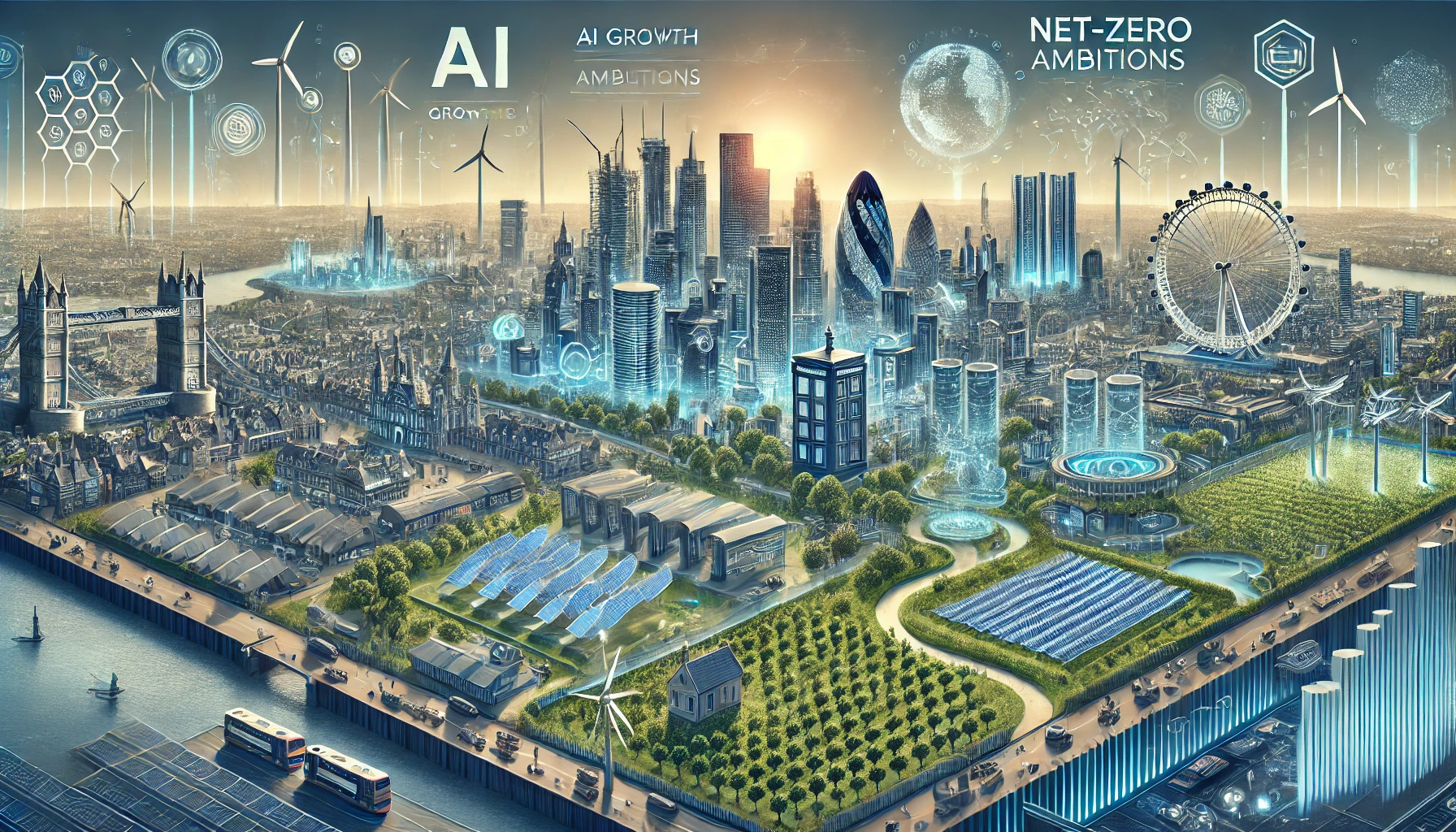In a bold move aimed at aligning technological innovation with climate goals, the UK government has outlined a new plan to leverage artificial intelligence (AI) to drive economic growth while maintaining its ambitious net-zero targets. The announcement, made on Monday, proposes the creation of “AI growth zones” across the country and highlights AI’s potential to boost productivity in public services and industries. But while AI promises substantial benefits, the plan also raises concerns about the environmental impact of expanding the technology sector, especially in terms of energy consumption.
AI Meets Net-Zero: A Complex Balance
The UK has committed to achieving net-zero carbon emissions by 2050, a crucial step to combating climate change. The integration of AI into government operations and business could make a significant contribution to this target. AI is already transforming industries ranging from healthcare to logistics by optimizing processes and improving efficiencies, which could reduce waste and energy consumption. For instance, AI-driven solutions in energy management can predict demand, optimize power grids, and enhance the integration of renewable energy sources.
However, experts caution that AI’s rapid expansion, particularly its reliance on data centers and large-scale computing infrastructure, could contradict the country’s green ambitions. Data centers, which are crucial for running AI models, are known for their significant energy consumption. The International Energy Agency (IEA) has warned that without sustainable practices, the growth of the AI sector could exacerbate emissions, making it harder for countries to meet their climate goals.
AI Growth Zones: A Vision for the Future
The UK government’s plan includes establishing AI growth zones, which are intended to foster innovation in AI while creating jobs and contributing to the economy. These zones would focus on utilizing AI to solve some of the UK’s most pressing issues, such as climate change, transportation, and healthcare. For example, AI could be employed to reduce emissions in transport by optimizing routes for electric vehicles and providing predictive maintenance to reduce energy waste.
“We are committed to making the UK a global leader in AI, but we must also ensure that these technologies align with our commitment to net-zero,” said the UK’s Secretary of State for Business, Energy, and Industrial Strategy. “By integrating AI into our infrastructure and businesses, we aim to tackle both climate challenges and economic growth simultaneously.”
Balancing Act: Opportunities and Challenges
The potential of AI to drive sustainability is clear, but its energy demands are equally undeniable. The rapid expansion of data centers required to support AI systems presents a significant challenge. The UK government has acknowledged the need for sustainable solutions, such as developing energy-efficient hardware, investing in renewable energy sources for data centers, and promoting the circular economy within the tech industry.
In a statement, the head of the UK’s Green Technology Association, Dr. Emma Wood, expressed cautious optimism. “AI has the potential to revolutionize the way we address environmental issues, but it must be done sustainably. We cannot afford to sacrifice our climate goals for the sake of progress in technology. The challenge is to ensure that AI’s energy consumption is powered by renewable energy and that data centers are optimized for minimal environmental impact.”
Looking Ahead
As the UK moves forward with its AI-driven strategy, it will need to strike a careful balance between fostering technological growth and achieving its climate goals. The next steps will involve increasing collaboration between government agencies, tech companies, and environmental organizations to ensure that the growth of AI does not undermine the UK’s net-zero ambitions.
In the coming months, the government plans to roll out additional details of its AI growth zones, along with specific initiatives aimed at integrating AI solutions into the UK’s green economy. For now, the challenge remains clear: how to harness the power of AI for a sustainable, net-zero future.
As the world watches, the UK may hold the key to demonstrating how technology and sustainability can go hand in hand.
